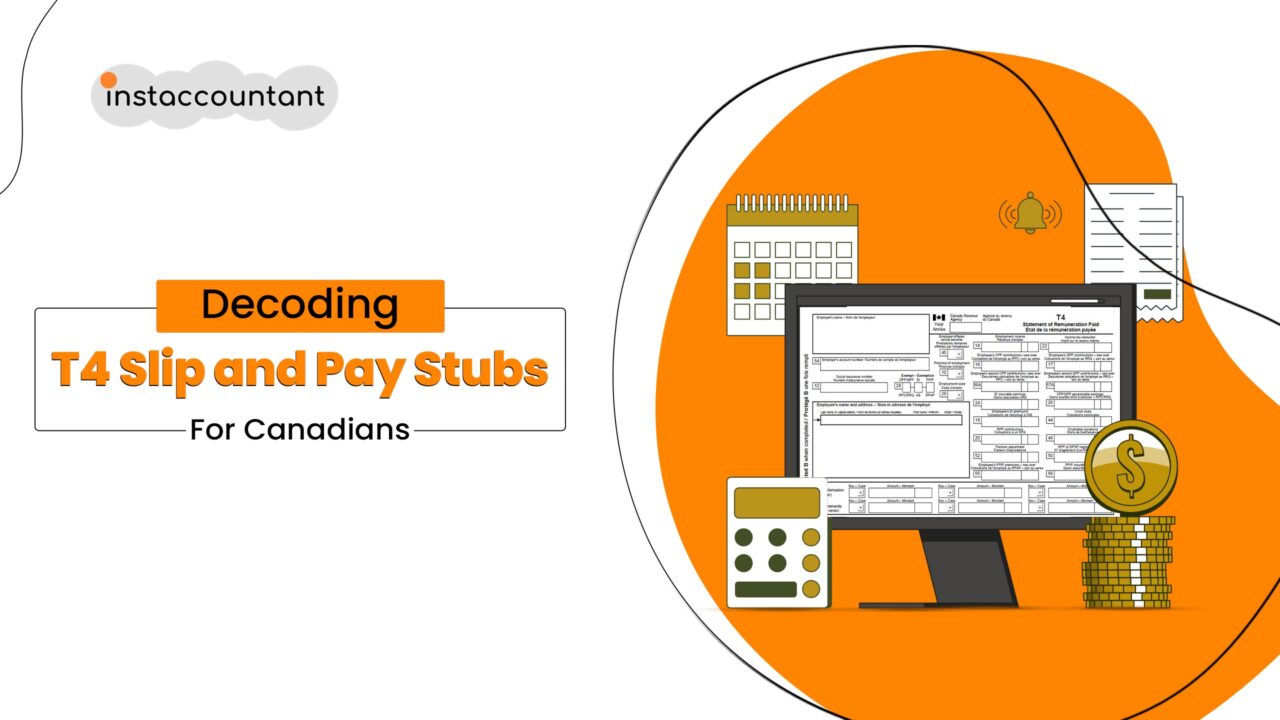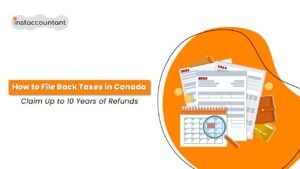Ever wondered why your paycheck isn’t quite what you expected? In Canada, employers withhold certain amounts from your earnings to go towards taxes and social programs. Understanding these deductions is crucial for managing your finances and navigating tax season. This guide will demystify your T4 slip and pay stub, empowering you to decode your pay with confidence.
What is a T4 Slip?
A T4 slip, formally known as a “Statement of Remuneration Paid,” is a tax document issued by your employer at the end of the year. It summarizes your total earnings and deductions for the entire year.
Payroll Deductions: What Are They?
When you receive your paycheck, it’s normal to notice that the amount is less than what you might have expected. This is due to your employer withholding certain deductions and remitting them to the Canada Revenue Agency (CRA). These deductions include income tax, Canada Pension Plan (CPP) contributions, Employment Insurance (EI) premiums, and possibly other deductions depending on your employment agreement and benefits.
Income Tax Deductions
The most significant deduction on your pay stub is likely to be income tax, which is indicated in box 22 on your T4 slip. This deduction is your contribution towards the potential income tax you may owe at the end of the fiscal year. If your total deductions exceed your actual tax liability, you will receive a refund when you file your tax return.
Canada Pension Plan Contributions
Your CPP contributions ensure that you will receive pension payments upon retirement. The annual contribution is split equally between you and your employer, with your portion shown in box 16 on your T4 slip.
Employment Insurance Premiums
Employment Insurance provides financial assistance during periods of unemployment, maternity, or parental leave. Your EI contributions are partially matched by your employer and are listed in box 18 on your T4 slip.
Other Deductions
Depending on your employer and the benefits they offer, you may see additional deductions on your pay stub, such as:
- Union Dues (Box 44 on T4 Slip)
- Medical Premiums (Box 85 on T4 Slip)
- Registered Pension Plan (RPP) Contributions (Box 20 on T4 Slip)
Understanding Your Pay Stubs
Each pay period, your employer is required to provide you with a pay stub. This document outlines how your pay was calculated, detailing your gross pay, any deductions, and your net pay. It’s essential to review your pay stub to ensure all information is accurate and to keep track of your year-to-date earnings and deductions.
What’s on a Pay Stub?
Pay stubs can vary slightly depending on your employer, but they generally contain the following information:
- Employer and Employee Information: Your name and employer details.
- Pay Period: The timeframe covered by the pay stub (e.g., bi-weekly, monthly).
- Date Issued: The date the pay stub was generated.
- Earnings & Deductions:
- Gross Pay: Your total pre-tax earnings for the pay period.
- Deductions: A breakdown of withheld amounts, including income tax, CPP, EI, and other employer-provided benefits.
- Net Pay: Your final take-home pay after all deductions are applied.
Year-to-Date (YTD) Information:
Many pay stubs also display year-to-date (YTD) totals for your earnings and deductions. This allows you to track your income and contributions throughout the year and compare them to your T4 slip at year-end.
Why Keep Your Pay Stubs and T4 Slips?
- Recordkeeping: These documents are essential for your tax preparation and ensure the accuracy of your tax return.
- Proof of Income: Pay stubs may be required as proof of income for various purposes, such as applying for loans or renting an apartment.
- Verification: In case of discrepancies with your T4 slip, pay stubs can act as supporting documentation.
Conclusion
Understanding your T4 slip and pay stubs empowers you to manage your finances effectively. By familiarizing yourself with these documents, you can track your earnings, verify deductions, and ensure a smooth tax filing experience. Remember, keeping good records of your pay stubs is crucial, so don’t hesitate to ask your employer for them electronically if you don’t receive them physically. Always consult with a tax professional if you have specific questions about your situation.
Remember, knowledge is power, especially when it comes to your hard-earned money. Stay informed and take control of your financial health.




